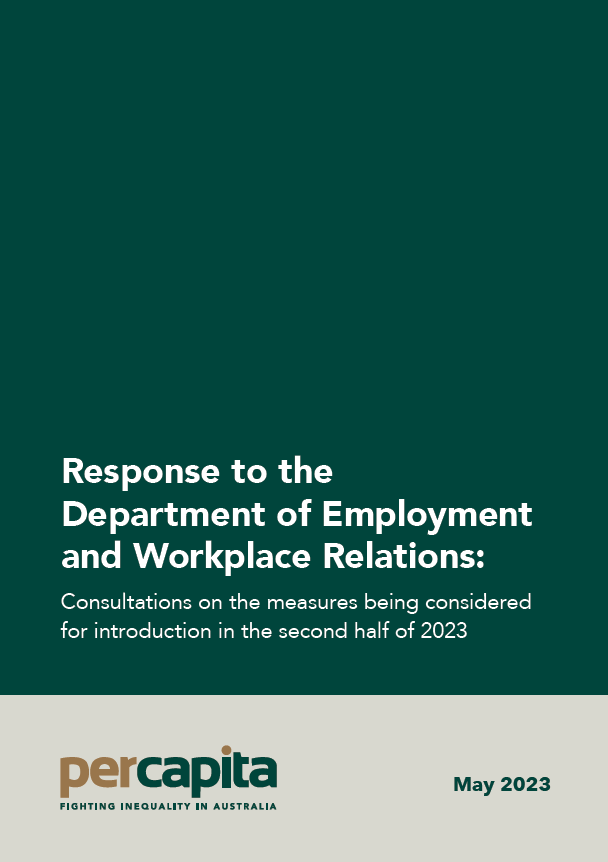We welcome the opportunity to provide feedback to the Department of Employment and Workplace Relations (‘DEWR’) on the industrial relations reform measures being considered for introduction in the second half of 2023. This document captures our responses to:
- selected questions in the four consultation papers;
- other measures where the department is seeking feedback; and
- measures that are not contemplated by the DEWR in their discussion questions, but in our opinion should be included in the next reforms.
This submission covers:
- Employee-like reforms
- Casual workers
- Criminalising wage theft
- Stronger protections for workers against discrimination, adverse action, and harassment
- ‘Same Job Same Pay’ legislation
Employee-like reforms
Today, there is a growing cohort of workers who are excluded from the provisions of the FW Act; unprotected by the safety net of minimum employment conditions. This raises serious questions as to whether our workplace laws, have kept pace with changing forms of work as we progress through the 21st century. We propose an updated definition of ’employee.’
Casual workers
In line with our position on a statutory definition of employee, Per Capita supports an amendment to the definition of casual employee which implements an objective test to determine casual employment. This would require consideration of the terms of the contract, but also the post-contractual conduct.
Criminalising wage theft
Wage theft is a problem that cannot be solved through market mechanisms, as it has become baked into the business practices of unscrupulous employers in a range of industries, most notably in hospitality. As a result, this issue requires a strong regulatory framework that contains enforcement measures and carries significant penalties for non- compliance. We argue that the government must take wage theft seriously, and that a strong interventionist approach must be taken to ensure the security of work for an entire generation of Australians. Wage theft takes many forms including unpaid trials, cash-in-hand work (not to be confused with being paid in cash), unpaid overtime, misclassification and superannuation theft.
Stronger protections for workers against discrimination, adverse action, and harassment
As an outcome of the 2022 Jobs and Skills Summit, the Government committed to update the FW Act to provide stronger protections for workers against discrimination, adverse action, and harassment. It is our strong opinion that necessary steps should be taken to ensure all workers are protected at work. It is a fact that courts have interpreted the FW Act’s anti-discrimination provisions in such a way that has limited the protection afforded to workers. In some cases, employers have successfully defended themselves against claims by relying on technical and narrow readings of the legislation. This, in our opinion, undermines the modest objectives of Australia’s anti-discrimination statutory schemes.
‘Same Job Same Pay’ legislation
Labour hire workers often have inferior rights, entitlements, and job security to their counterparts in ongoing employment. There are legitimate reasons for labour hire use in Australia, however this form of engagement has expanded far beyond its traditional use. That was, providing short term or temporary labour, or workers with specific expertise. This expansion, in concert with the lack of regulation, has opened the door for the triangular relationship to be utilised as a tool for reducing wages and conditions.

